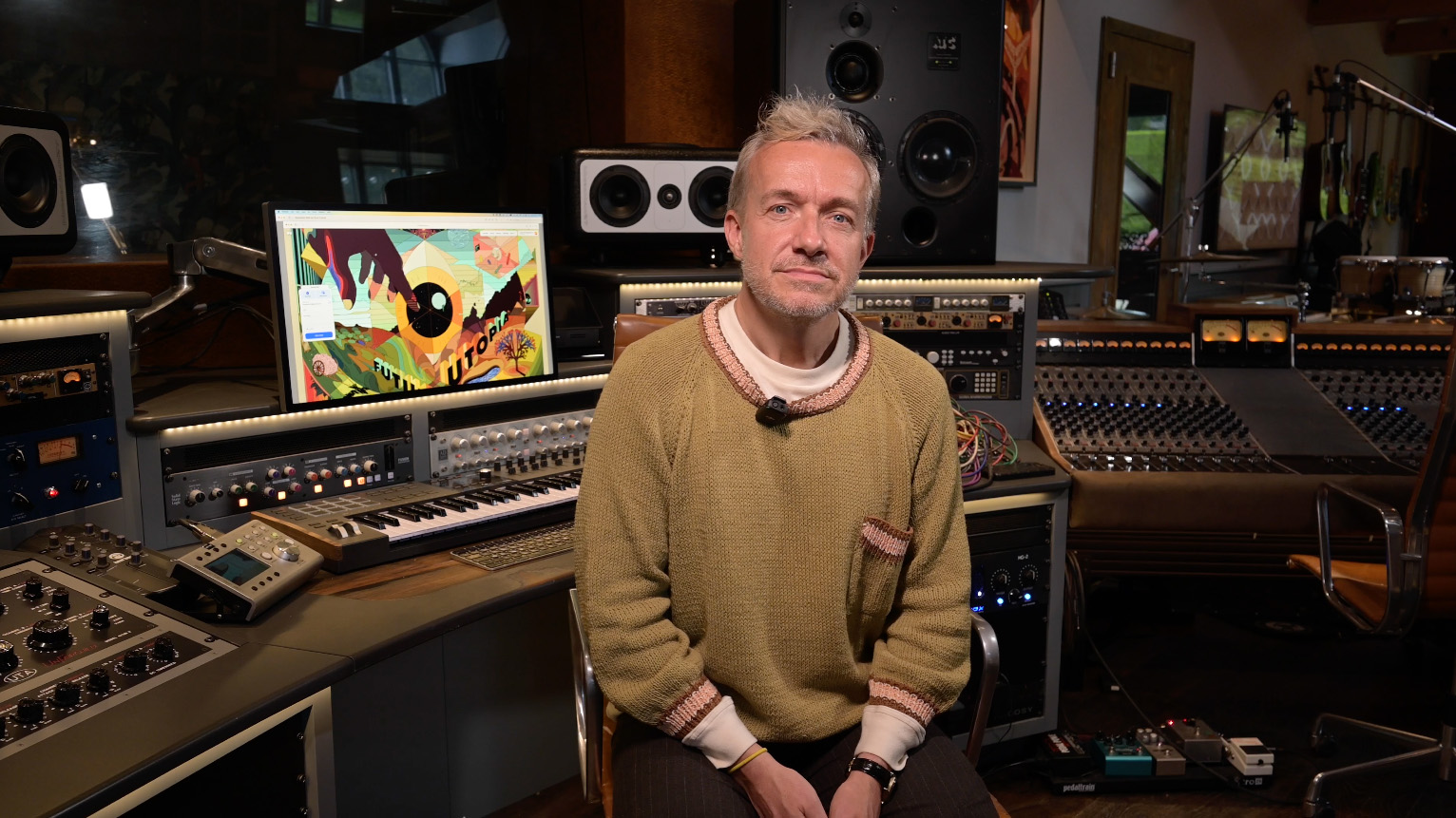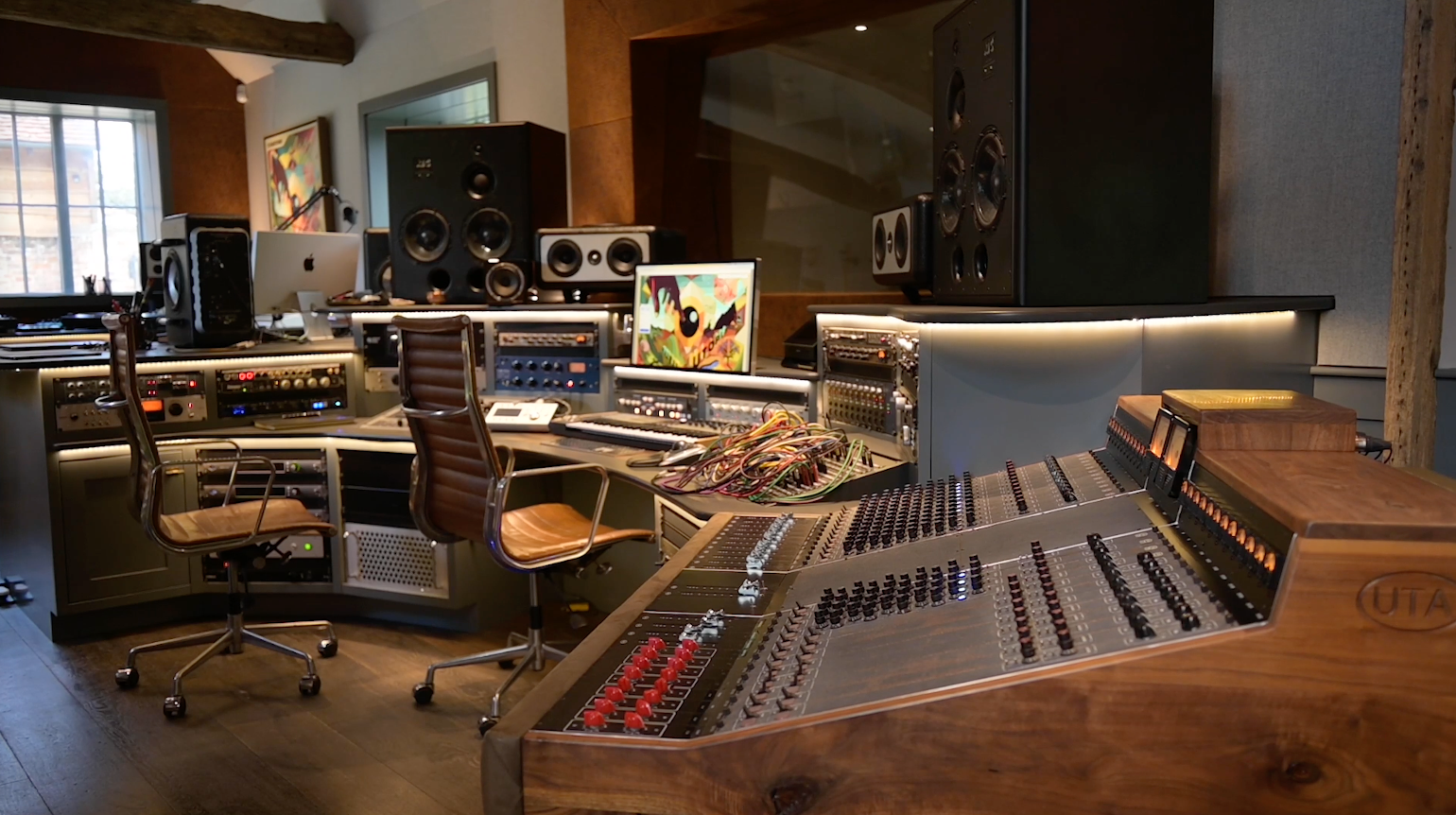“When I started I didn't really know what a producer was. I just thought artists would produce themselves, because that's what I would have done”: Adele, Stormzy and Kae Tempest collaborator Fraser T Smith on the shifting definition of a ‘producer’
The award-winning producer on his Future Utopia project and the need to be a ‘Swiss Army knife’ in the studio

What exactly is a producer? In a musical sense, the term is applied to everything from solo electronic artists and hip-hop beatmakers through to those behind the mixing desks of top-end studio facilities – via whatever it is that Rick Rubin actually does.
“When I started my career I didn't really know what a producer was,” Fraser T Smith admits. “It sounds weird, but in those days there was no YouTube, and you couldn't Google 'what is a producer?' I just thought artists would produce themselves, because that's what I would have done.”
Despite this, Smith is now better placed than most to provide a definition. Over the past decade he’s taken on the producer role for a raft of award-winning releases, from Adele’s Set Fire to the Rain to Kano’s Made in the Manor, Stormzy’s debut album Gang Signs and Prayer and Dave’s Psychodrama, alongside work with Sam Smith, Kasabian, Tinchy Stryder and many others.
Smith’s fascination with music began as a young child, inspired by hearing his grandmother play piano. “She used to play in the clubs and pubs,” he recalls, “she was a really good, self-taught pianist. She didn't read music or anything. I would watch her play, and then as the adults got into conversation I would just start messing around on the piano.”
At School, Smith was a contemporary of Tom Rowlands, who would go on to form the Chemical Brothers, and the two bonded over a love of drum machines and the hip-hop records being imported from the US.

He learned to play guitar and produce basic recordings using a Tascam four-track and Akai hard disk recorder. After dropping out of a business course at college, Smith gained a scholarship to study music at the West London Institute, where he met musicians including Reef founders Kenwyn House and Dominic Greensmith.
After leaving college, Smith landed a gig playing guitar for Rick Wakeman. “That was an amazing musical apprenticeship," he says, “going through playing sessions with different people, and going into all these different studios. ”
Want all the hottest music and gear news, reviews, deals, features and more, direct to your inbox? Sign up here.
Smith became close friends with Wakeman’s son Adam, and the two worked together on a number of musical projects. But the studio sessions also introduced Smith to the variety of career paths that exist in music, beyond that of the musicians themselves.
“One day, I had a lightbulb moment,” he explains. “I was in a studio, and there was an artist there, but also some other people. They were saying, ‘why don't you try this, and why don't you do that?’
“After the session had finished, I asked the engineer, ‘who were the other people?’ They were the producers. And, then there were some other people there who were songwriters. I joined the dots and thought, okay, there's a career here.”
What is a 'producer'?
We meet up with Smith in a gorgeous residential studio facility, set in peaceful countryside roughly an hour outside of London. The space is built into a custom-converted barn and configured to encourage maximum creativity, with spaces for pianos, guitar amps, synths, DJ gear and more.
It’s here that Smith has worked on recent projects including new albums from Kae Tempest and Snow Patrol. It also provides space for Smith to develop his own project, Future Utopia, which takes in influences from hip-hop, house and psychedelic rock.
So how, with several decades of experience under his belt, does Smith define his role as a ‘producer’ in 2025?
“You have to be like a Swiss Army knife,” he says. “I think it's good to have that fluid approach to being a producer. It's about being a service to the artist and it's about being useful. What that means differs from day to day, though.
“It could be needing to be there on a human level and working out things like scheduling or personal issues. Or, obviously, a lot of it is about working with musicians. In some cases, I'm the only 'musician' in the room, so it means being fluent enough on keys and guitar and drums and programming to capture the right feeling.”
By his own admission, that level of musical dexterity requires a certain amount of bluffing on Smith’s part.

“I had a situation a few months ago,” he tells us. “I was working on the Kae Tempest album, Kae and I had this moment where we were writing this song called Till Morning, which is an incredibly touching, sensitive record.
“Kae said, ‘you know, I've got this idea for the bass that I'd love you to experiment with’ and guided me on Spotify towards some Jaco Pistorius. I was like, ‘you know, Kae, you've got to understand, bass players spend their whole lives scratching the surface of what Jaco Pistorius could do. I'm a guitar player, I understand what this is, but this may be out of the realm of what I can do.’
“But I started playing, and I realized what Kae meant was not necessarily about the deftness and virtuosity of Jacko. It was more about creating a higher, chordal bass part. I added some chorus, did some editing and it was something that we were able to achieve.”
The producer role, according to Smith, means dealing with both big-picture questions and the more specific, minute-by-minute problems that arise through a recording session.
“It's about understanding the absolute micro-level details of how effects work, or how EQ affects a hi-hat,” he says. “Then zooming out to the huge macro elements of how an artist is feeling on any particular day. There's a lot to it, but it's also about not getting in the way when you don't have to, while ultimately being completely there when it's needed.”
Future Utopia
With his Future Utopia project, Smith has written and released three full length albums, along with a remix compilation, and has toured the project both as a DJ and with a live band.
“I felt like I really wanted to stand up and be counted and have my own songs out there,” he explains.
There’s no doubt that the experience of recording and touring Future Utopia have influenced Smith’s works as a producer too, though.
“I feel in some ways more confident in the room,” he tells us. “I think that also comes down to being able to to relate to what artists are going through. Being able to talk about different experiences live, but also things like promotion.

“I can understand a lot more because I've actually been doing it myself, you know? I understand how challenging it can sometimes be to get things out. How sometimes you're feeling super creative, and other times like maybe less so.
“I’ve had to bring that out of myself, and so that experience helps me to bring it out of other people, which is really the job of a producer – to be of service and help.”
In our video interview, which you can watch above or on the MusicRadar Tech YouTube channel, Smith discusses more about the creative process behind Future Utopia, how all musicians can improve their tracks by stepping out of the box, and how he’s aiming to address a lack of diversity in the world of music production.
Future Utopia’s latest single, The Pleasure Trap, is out now.
I'm the Managing Editor of Music Technology at MusicRadar and former Editor-in-Chief of Future Music, Computer Music and Electronic Musician. I've been messing around with music tech in various forms for over two decades. I've also spent the last 10 years forgetting how to play guitar. Find me in the chillout room at raves complaining that it's past my bedtime.
You must confirm your public display name before commenting
Please logout and then login again, you will then be prompted to enter your display name.